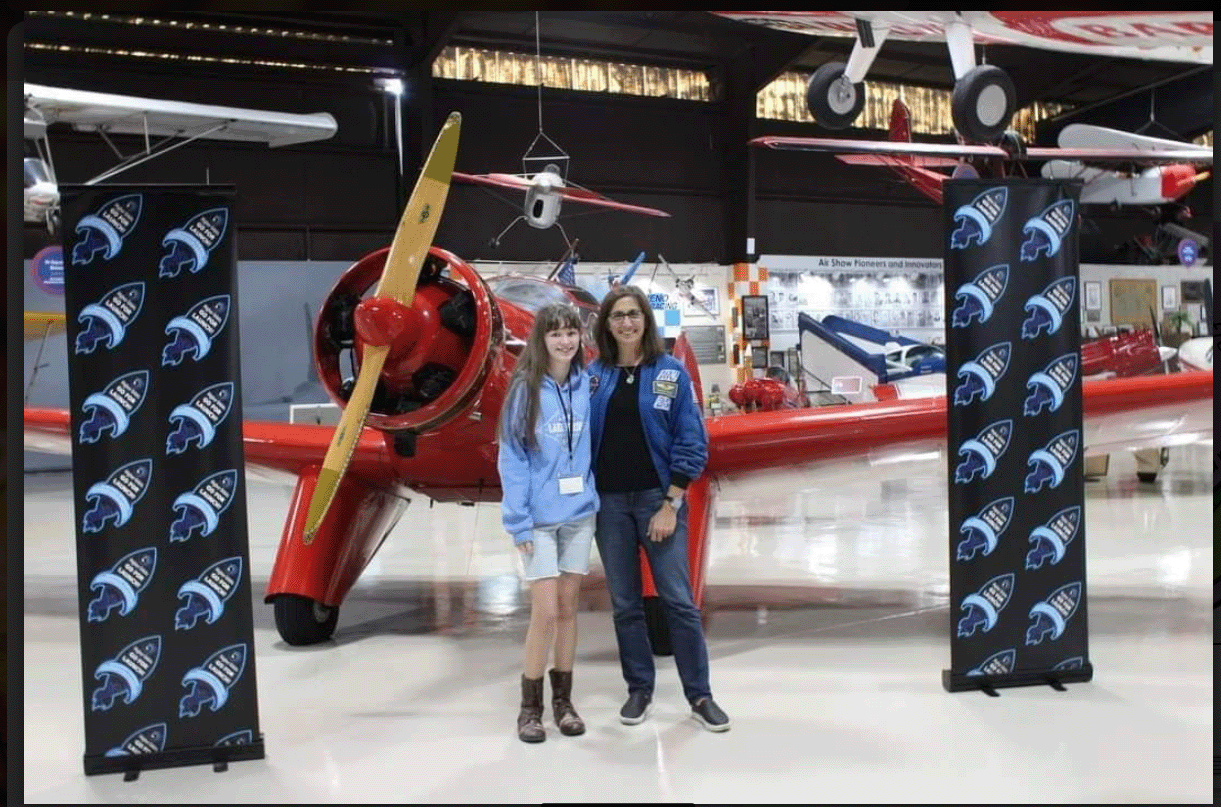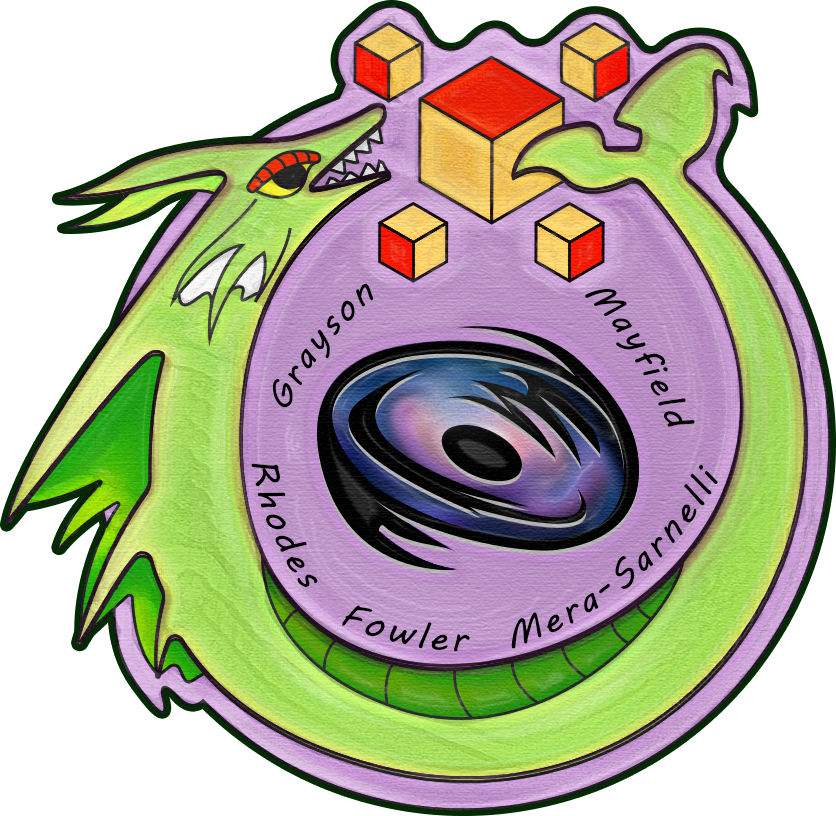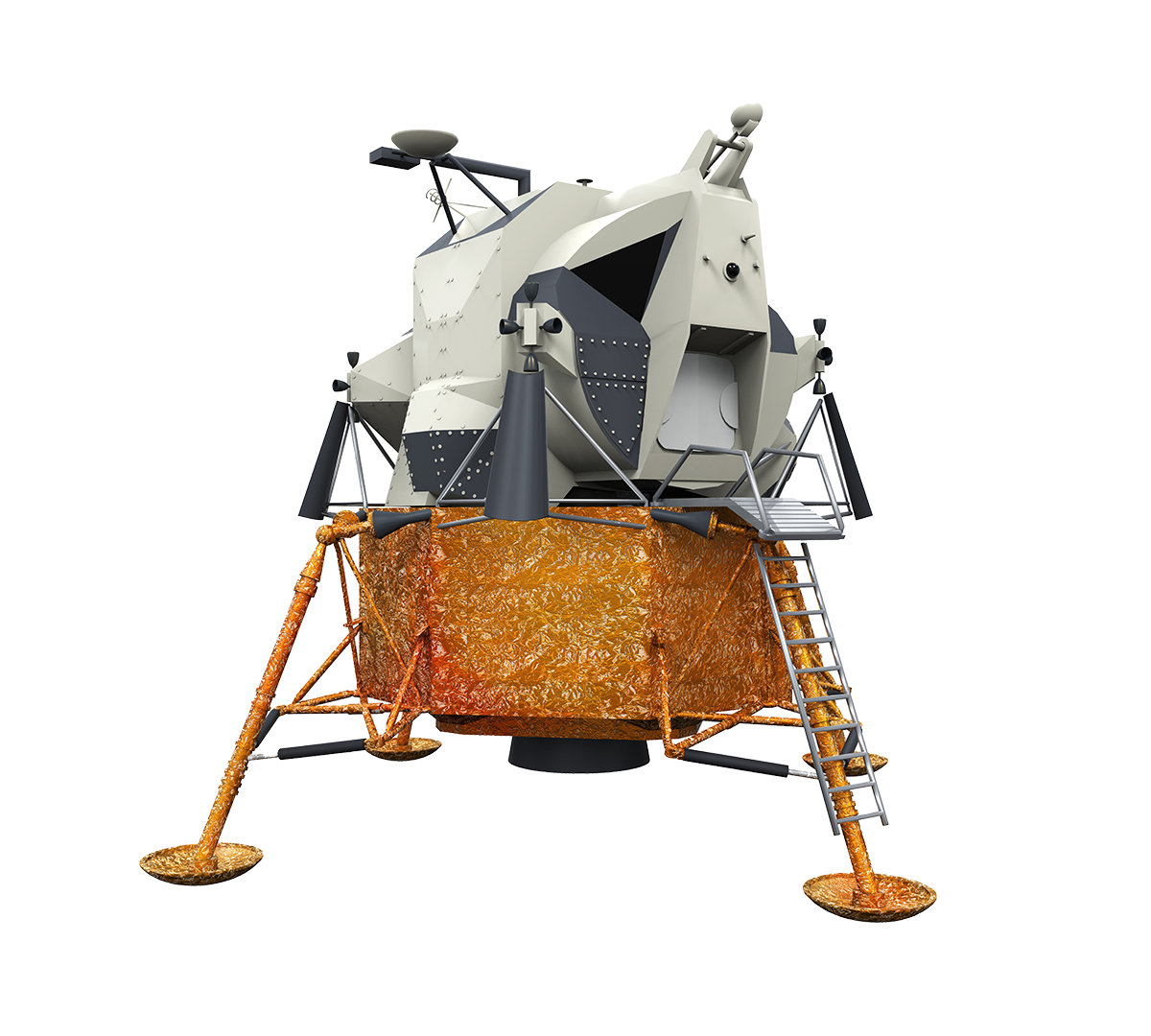As I reflect on my journey and experience with Higher Orbits and my team, Team Andromeda, I’ve tried to think back and pinpoint where my interests of STEM began. In the summer of 4th grade, when I was nine years old, my mom signed me up for a STEM camp at the University of Florida (UF) in Gainesville. I spent a whole week there engaging in numerous STEM (science, technology, engineering, and mathematics) activities—things such as dissecting a cow’s heart (science), robotics (technology), and much more. At that age, I was already interested in such fields.
In the late summer of the start to my 9th grade year, my mom began to tell me about this program that related to space. She said the event had finally made it to Lakeland, Florida. I remember shrugging as she spoke. Sure, the idea of a space related day camp sounded awesome! But socializing with people whom I didn’t know... eh, not so much. Then, she told me that a fellow Girl Scout friend, Autumn Pepper Rhodes, was going to be there. In fact, that’s how she heard about the 2021, Higher Orbits—Go For Launch! event.
Still, I really didn’t feel like going. I just wasn’t really feeling up to it.
However, looking back, I am really glad my mom signed me up for it anyways.
When I got there, at the Aerospace Center for Excellence, I was nervous. I didn’t know what exactly was going on.
Then, before I knew it, I made friends and formed a group with them. The group was a group of five that included myself, Autumn, Anais, Chelsey, and Morgan. With some research and creative thoughts, we named ourselves, ‘Team Andromeda,’ a galaxy that is very beautiful with an intriguing story behind it.
With our groups, we were told to create a project that could be potentially sent up into space. This project had to solve some kind of problem on Earth, something beneficial. This project had to also fit within a small cube, something with limited space. This project had to be created, brainstormed, and then presented in two days, something completed with a small time frame.
Immediately, we flung ourselves to our computers and began typing, searching up things, trying to figure out different ideas. We had no clue what we were doing until, finally, we decided upon doing something biological, something dealing with living things. We were allowed to have an experiment involving bacteria as long as it had a low bio safety level and was single celled.
We all sat back, leaning away from our computers. We didn’t know what we were looking for, but we collectively agreed that this ‘whatever we were searching for’ needed to ‘wow’ the judges. Team Andromeda wanted to win this tense competition that we were thrust into... but we just couldn’t find what we needed.
Then, with some simple keyboard strokes, Morgan, the youngest in our group, suddenly whipped her computer around, the screen presenting us with our solution. Deinococcus radiodurans.
That was the answer we were looking for! This bacteria, as we quickly researched it, happy to finally have found something that would be ISS (International Space Station) worthy, was an extremophile. This meant that this bacteria was able to survive under extreme conditions, or, as we jokingly called it, a ‘baddie bacteria.’ Anyways, to make sure our idea wasn’t something done in the past, we did even more research. There, we found that Deinococcus radiodurans had been sent to space before, however, it was only sent there to study the effects of radiation on it. This was good news for us.
Deinococcus radiodurans was an extraordinary bacteria, one that’s lipids have been suspected to help with the aid and treatment of many respiratory diseases. With the fact that, like most bacteria, its reproduction numbers increased while in space, we noted that we would have a lot of lipids to experiment with and look at. The lipids would be removed from the Deinococcus radiodurans once the cube it would be in made it back to Earth. From there, the lipids would be examined and used to create vaccines and treatment to help respiratory diseases—and maybe help prevent them.
The night of the first day, I got to the hotel I was staying in and talked my family’s ears off. As I did that, I moved my pencil quickly, sketching out the design for our flight patch, something that represented us. Since our name was ‘Team Andromeda,’ as the story includes, I drew a green serpent for the outline of our patch. I drew a galaxy in the center, symbolizing Andromeda. Then, representing both the number of people in our team (five) and the cube that would (hopefully) hold our project, I drew five orange cubes at the top. Finally, I added all of our last names to the patch.
Suddenly, it was morning. The nervousness came back as soon as my parents left. Today was the day to finish and touch up everything before presentations and judging. Before we knew it, the day went by, and we were standing before a panel of scientists. We presented our PowerPoint and made sure we answered everybody’s questions to the best of our ability.
I sat back down, and my legs felt like jelly. I was super anxious by now. We all broke away while the scientists deliberated. I was still really nervous, anxious, on edge. Waiting for an answer, waiting to see how our project was judged, waiting for the final announcement on the winner. We were hoping to be called, to hear our name, but as long as we had the memories of such a unique experience, we were happy.
Then, when we all gathered back together in the presentation room... the winners were announced.
Suddenly, our entire group sprung up from our chairs, overjoyed by the news—we were the winners thus far! This was such an accomplishment for us. We were just some group of five strangers who developed an idea and then we became a group of friends, a reliable team, whose project was going to the next level. Of course, we’d have to go through the national judging, but we were so happy to have just won at the lower level at the Aerospace Center for Excellence. We got some goodies and walked away from the camp feeling like champions.
We got back into the swing of normal high school life, still amazed with what we did. Over the course of the following months after September 2021, we were tasked with writing up the answers to any questions the SpaceTango team presented us with—they’re the scientists that work with Higher Orbits and creating the cubes that get sent up into space. Finally, once we completed all the necessary papers, we all wondered if we were dreaming. If mean, how often to middle and high school aged students attend a day camp and end up creating a project that will potentially be launched into space?
Then we had to wait. Ms. Michelle Lucas, a wonderful person from Higher Orbits, posted that she was going to do a Facebook live stream to announce the national winners on March 22, 2022.
Ms. Lucas appeared on Facebook with her announcement... Team Andromeda was the winner for the 2021 Go for Launch! series!!!!
Over the recent past few months, Autumn has become the main spokesperson for our group and has been consistently keeping everything in check—like keeping us in check with our deadlines and such alike. We are all continuing to work on the things that we need to and are waiting for the launch of our project in the Spring of 2023. Three other teams’ projects will be sent up with ours, so, currently, I am working on creating a collaboration (collab) patch that will represent all the teams involved.
I honestly didn’t know what was going to happen at that day camp that I happened to attend back in the September of 2021. But now, here I am, so happy that I went because the Higher Orbits—Go For Launch! event has been one of the most amazing and unique experiences in my life. I think anyone who’s interested in STEM and space should attend this camp. Scratch that, anyone in general should attend. This is such a great opportunity that many youths should seek out, especially if it comes to a place near you sometime in the future. I would recommend this event to anyone and everyone.
Don’t tell me the sky’s the limit when there are footprints on the moon!
Please be on the lookout for Team Andromeda’s launch in the Spring of 2023!


